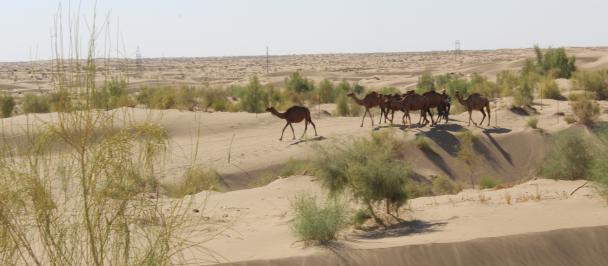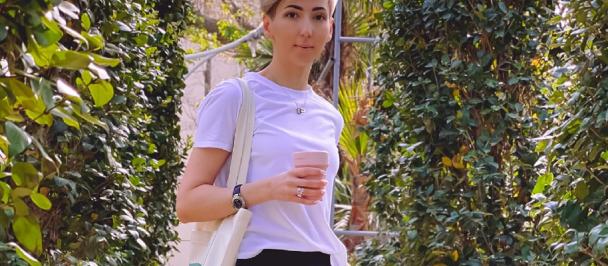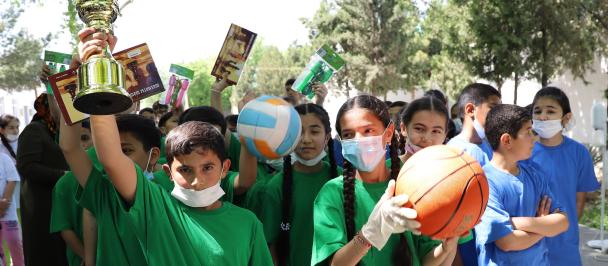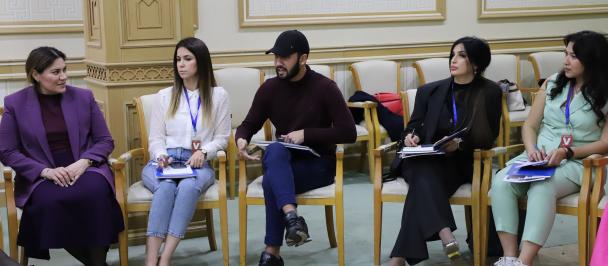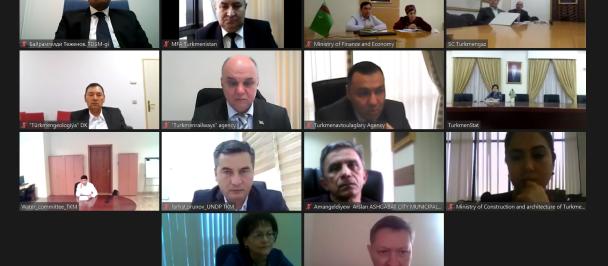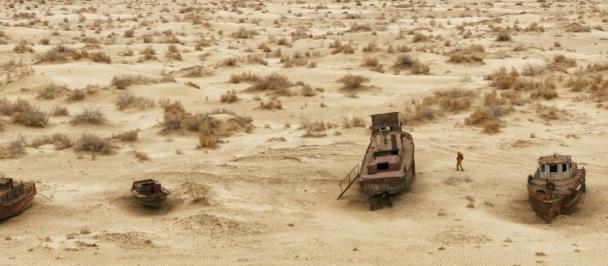Geokdepe, May 24, 2019: UNDP/GEF project on energy efficiency in the water sector continues implementation of measures to improve the efficiency of land use at its 145 ha of land site of the national research and design institute “Turkmensuwylymtaslama” in Geokdepe district.
First, the project completed infrastructural changes at the site. Collector-drainage system of the entire land plot was reconstructed to reduce the level of groundwater and prevent soil salinization, cleaning works were carried out to eliminate weeds and reeds from the fields. Furthermore, the project completed land levelling works in the field and distributed the required amount of mineral and organic fertilizers to the soil.
In addition, various types of water-saving irrigation systems for agricultural crops were designed and built. As a result, 14.3 ha of land was dedicated to the dripping irrigation systems, 9.75 ha to the radial sprinkler machine and 17.5 ha to the frontal sprinkler and around 56 ha to the improved furrow irrigation method.
On the basis of the new infrastructure, the project is carrying out full-scale feasibility and environmental studies on the application of various irrigation technologies in the cultivation of agricultural crops; research is being conducted to study the effect of fertilizers on soil productivity. The project aims to demonstrate that abandoned degraded lands can be “brought back to life”.
For the first time in many years, cotton, wheat, vegetables, beetroot, melons and watermelons, lucerne and corn were planted on the plot. The research demonsrtaes that the use of modern water-saving irrigation technologies in combination with high agrotechnical methods of cultivation of agricultural crops brought very good results. For example, studies showed that in 2018, we have used 2.5-3 times less irrigation water to produce around 60 centner/ ha of cotton compared to the traditional irrigation method. At the same time, the content of harmful salts in the soil has significantly decreased.
“The next stage of our work is greening of the territory by creating “forest belts” around irrigated fields to protect agricultural crops from the negative impact of high summer air temperatures and dry winds. We carry out this work together with the Nature Protection Society. As a part of this work, almost 1,000 trees have already been planted, and we look forward to seeing the first results,” explained Mr. Chary Taganov, UNDP/GEF Project Specialist.
With support of the project, several postgraduate researchers from agricultural universities of the country conduct scientific work to study the possibilities of using modern irrigation systems. They make a research into the soil condition: measure soil salinity, moistness, evaporation and other indicators, and seek to establish the relationship between irrigation of different crops and the yield that they give.
“We hope that the research works conducted in Geokdepe will help the farmers of Turkmenistan to find the best and most suitable irrigation methods for specific local soil-reclamation conditions,” stated Mr. Geldi Myradov, UNDP/GEF Project Manager.

 Locations
Locations